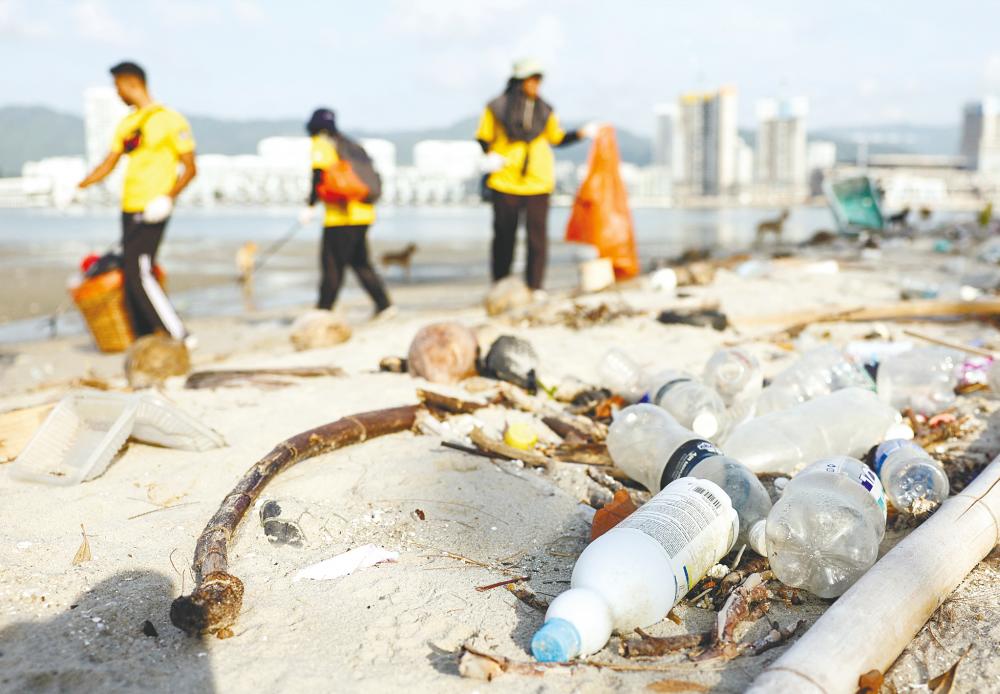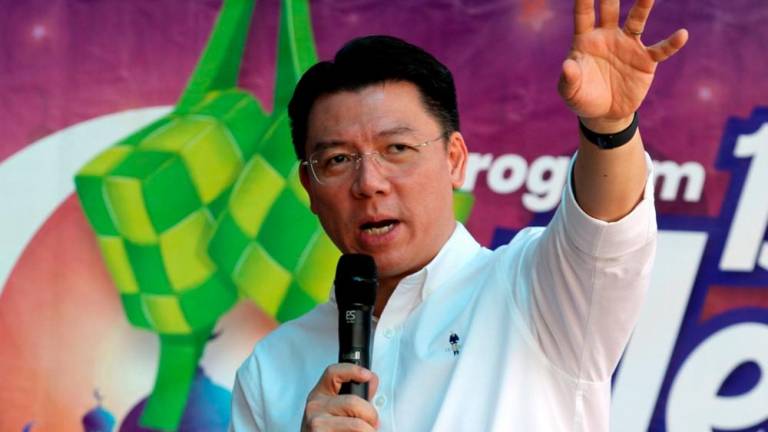PETALING JAYA: An academic has called on the government to take decisive action against plastic pollution, considering that some 489,000 tonnes of plastic waste was imported in 2021.
Universiti Putra Malaysia Department of Environmental and Occupational Health lecturer, Assoc Prof Dr Sarva Mangala Praveena Appalanaidu, said Malaysia has become one of the world’s largest importers of plastic waste.
“Malaysia received nearly 500,000 tonnes of plastic waste in 2021 and returned only about 11,000 tonnes.
“Embarrassingly, we are ranked eighth globally for ‘mismanaged plastic waste’, she told theSun in conjunction with Earth Day yesterday. It is observed on April 22 each year since 1970.
“Beyond just importing plastic waste, we contribute nearly one million tonnes of it yearly and are a ‘global powerhouse’ in plastic production, with an RM30 billion industry.
“All this is happening despite Malaysia being a party to the Basel Convention’s Plastic Waste Amendments, and our engagement in regional initiatives such as the Asean Framework of Action on Marine Debris.”
Sarva Mangala said being a party to the convention and the framework underscores Malaysia’s commitment to collaborative efforts aimed at tackling the challenges of plastic pollution.
“These efforts require a multifaceted approach that encompasses legislative advocacy, behavioural shifts, community engagement, education, innovation and corporate responsibility.”
With the theme for this year being “Planet vs Plastics,” Sarva Mangala stressed the urgency to raise awareness about the health risks of plastic pollution and the environmental damage it causes.
She said the extensive use of plastic items in the country has led to a substantial increase in plastic pollution.
According to the UN Environment Programme, which is a global authority for the environment that focuses on climate, nature, pollution, and causes of environmental degradation, most plastic waste consists of single-use grocery bags, boxes, and containers.
“With Malaysia being a top importer of plastic waste since 2017, we face significant challenges due to our dual role as plastic producer and plastic waste importer,” she said.
“Incidents of clogged sewers and overflowing landfills underscore the urgent need for collective action. The public and authorities must curb our dependence on plastics.
“Earth Day is not just a platform to raise awareness but is a call to unite in a collective fight against plastic pollution.”
Sarva Mangala called on the public to champion a 60% reduction in plastic production and usage by 2040.
She added that individuals and organisations should limit their use of disposable plastic grocery bags, straws, vessels and packages.
“We should encourage reusable alternatives such as cloth bags, metal or glass containers, and materials that are biodegradable, recyclable or compostable.”
She also pointed to the Extended Producer Responsibility (EPR) strategy, which is an environmental protection policy aimed at decreasing the total environmental impact of a product and its packaging.
The strategy ensures that producers of a product take responsibility for its entire lifecycle, including its take-back, recycling, and final disposal and packaging.
The EPR is a strategy practised in most European Union (EU) member countries such as Germany, France, Belgium, Spain, Ireland, Austria and Sweden, apart from a few non-EU ones such as Nigeria.
“EPR programmes encourage companies to develop products with recyclability in mind, and force them to accept responsibility for their products’ end-of-life.
“To strengthen such programmes, Malaysia must enact laws that hold manufacturers accountable for their product’s lifecycle.
“Through concerted efforts at all levels, Malaysians can affect substantial change, contributing to both national and global endeavours to combat plastic pollution.”
Sarva Mangala said while Malaysia has made strides in combating plastic pollution, challenges persist in implementation and enforcement.
“Greater emphasis on education, community engagement, innovation, and robust policy enforcement is essential to realise a plastic-free future,” she said.











